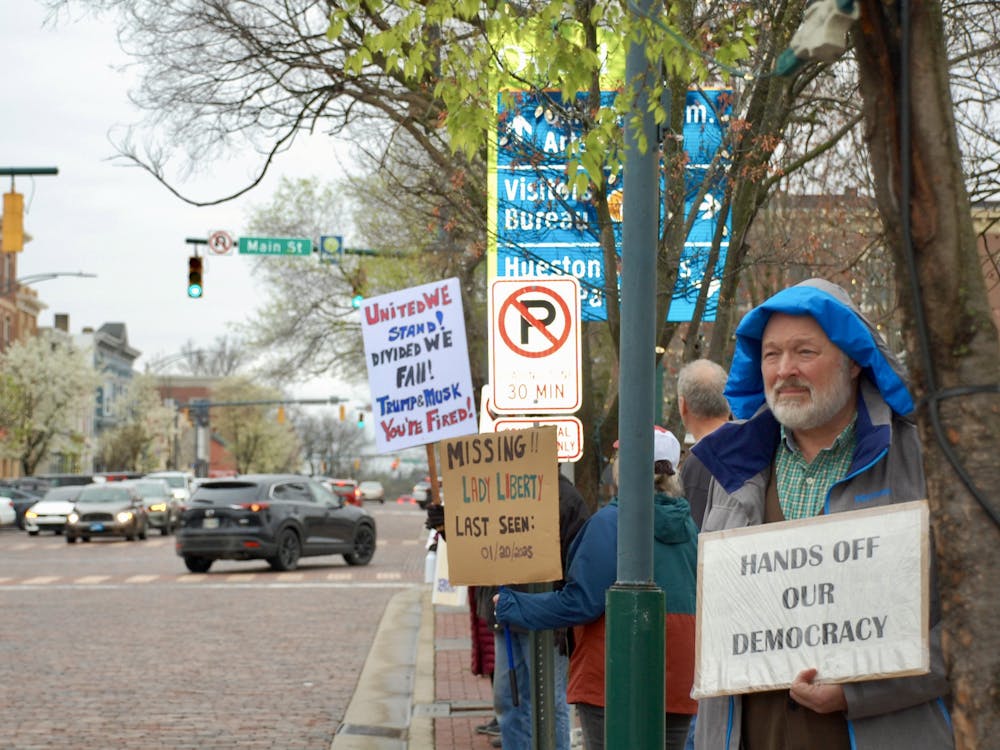Rather than the beaches of Florida or Cancun, I spent my spring break in the legislative offices of Washington, D.C. and Columbus with a group of 55 other Miami students.
The government relations network (GRN), headed by Randi Thomas, has partnered with dean and university librarian Jerome Conley since 2012 to run this "alternative spring break conference," in which students advocate on behalf of Miami and higher education in general.
"Students from diverse majors have a common purpose in making Miami not only a primary university in Ohio, but also in the nation," Conley said.
This year, more specific issues required student testimony. At the federal level, we asked legislators to consider the reauthorization of the Higher Education Act, which provides programs such as Pell grants and Stafford loans.
Contrary to what some people, myself included, might think, meetings in Washington D.C. do not have more influence than the meetings in Columbus. In fact, the opposite may be true. We discussed Governor John Kasich's budget with state representatives, emphasizing the university's position, which happily mostly aligned with our own position -- that the proposed requirement to have the university allocate $300 per student per semester for their textbooks would be financially detrimental to the quality of education at Miami.
Each student had opportunities to tell their own stories about college affordability, an issue dear to all 56 student attendees. Some legislators were more receptive than others. Ohio State Senator Kris Jordan likened issues of college affordability to the topical healthcare situation.
"If you know everything's paid for by somebody else you're going to take what you can, you know, just like a doctor will run tests for everything if it's paid for rather than just giving you the one medication you're likely to need," Jordan said.
The most amenable legislators and aides had connections to Miami, and it was astounding to note just how many had those connections, not only in Columbus but just as prominently in D.C.
I had three meetings on my first day in Washington. One staffer was a recent Miami graduate, one staffer's father was a Miami alum, and one representative had a daughter currently enrolled as a sophomore at Miami.
I was far from the only conference newcomer surprised by the breadth of Miami alumni in the state and federal legislatures.
"This conference has really opened up my eyes to what the GRN does at Miami University and how we prepare students to go into the field of either politics or advocacy," said sophomore political science student Matt Pall.
Pall noted the receptiveness of the legislators he encountered.
Enjoy what you're reading?
Signup for our newsletter
"My biggest takeaway is how accessible not only representatives are at the national level but also at the state level and how there are multiple channels to reach these policy-makers," Pall said.
Dean Conley felt the fifth GRN "alternative spring break conference" was a success.
"I feel this conference has accomplished its goals in fostering relationships between students and educating legislators about university issues," Conley said. "I hope we've made an impact in the way people see Miami University."
I'm inclined to agree. Both national and state representatives were effusive and helpful even to those of us that weren't their constituents, but the best encounter by far was walking into the office of Ohio State Senator Darrell Kick who immediately declared upon our entry, "Whatever you kids want, I'll make it happen. I love Miami!"




